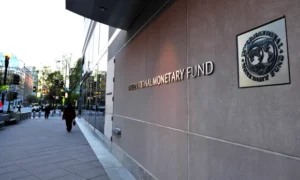Emerging markets, including powerhouses like Brazil, India, and Indonesia, are increasingly central to the global economy’s dynamics.
A detailed analysis by the International Monetary Fund (IMF) revealed that the G20’s emerging economies have significantly upped their ante in world trade.
Since 2001, they have doubled their share and now represent a third of global GDP.
This growth underscores their escalating influence and the profound impact they can wield on the worldwide economic landscape—both for better and worse.
IMF forecasts 3.1% global growth in 2024, and 3.2% in 2025, highlighting emerging markets’ importance amid challenges.

The journey post-pandemic for these economies is lined with both challenges and opportunities.
They face the task of overcoming corporate distress and financial instability to pave the way for sustainable growth.
Key priorities include implementing market-oriented and governance reforms, strengthening social safety nets, and addressing infrastructure gaps.
Yet, managing inflation remains a complex challenge, varying across different regions.
These developments mark the multifaceted role of emerging economies in shaping the global economic order.
They highlight the need for nuanced and well-integrated policies to maximize their growth potential while minimizing risks.
As these markets continue to evolve, their blend of opportunities and challenges will require careful consideration from global policymakers and stakeholders.

